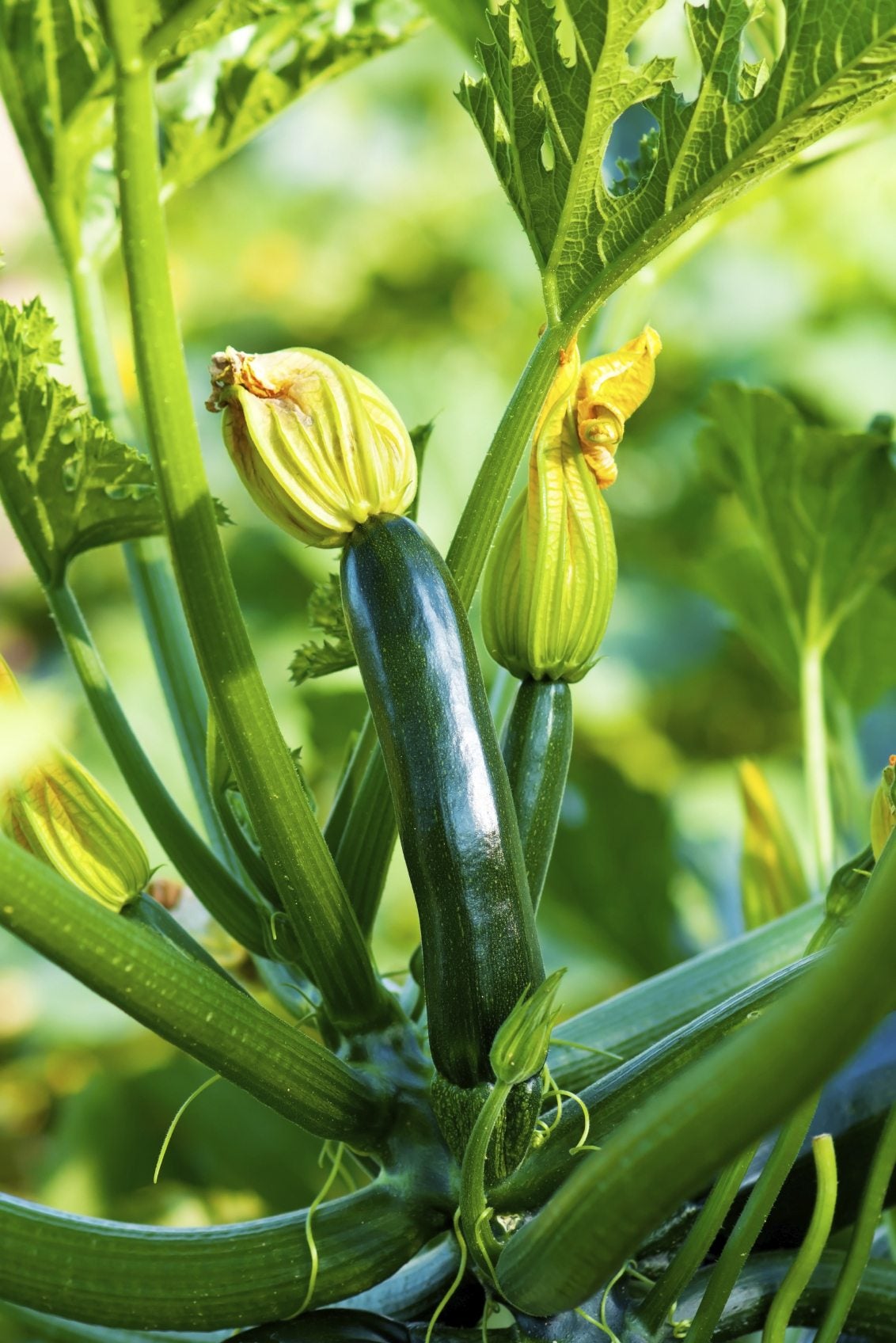
Zucchini is one of the most popular summer squash varieties to grow in the vegetable garden, although they are technically a fruit, because they are easy to grow, prolific producers. One source states that the average plant produces between 3 and 9 pounds (1-4 kg.) of fruit. My plants often exceed this number. To get the highest yield of fruit, you may question “should I fertilize zucchini?” The following article contains information on fertilizing zucchini plants and zucchini fertilizer requirements.
Should I Fertilize Zucchini?
As with any fruiting plant, zucchini can benefit from additional feedings. How much and when to apply zucchini plant fertilizer will depend on how well the soil was prepared prior to sowing or transplanting. For optimal production, zucchini should be started in rich, well-draining soil in an area of full sun. Summer squashes are heavy feeders, but if you are lucky enough to have nutrient rich soil, you may not need any additional feeding of zucchini plants. If you are interested in feeding zucchini plants organically, the time to start is prior to sowing seed or transplanting. First, select your site and dig up the soil. Dig in about 4 inches (10 cm.) of well composted organic matter. Apply an additional 4 to 6 cups (1 L.) of all-purpose organic fertilizer per 100 square feet (9.29 sq. m.). If your compost or manure is high in soluble salts, you will need to wait three to four weeks before planting the zucchini to prevent salt injury. Plant the seeds at a depth of one inch (2.5 cm.) or transplant starter plants. Water the plants once a week to keep them moist, 1 to 2 inches (2.5-5 cm.) per week depending upon weather conditions. Thereafter, apply organic zucchini plant fertilizer when plants just begin to bloom. You can use an all-purpose organic fertilizer or diluted fish emulsion when fertilizing zucchini plants at this time. Water in the fertilizer around the plants and allow it to soak down into the root system.
Zucchini Fertilizer Requirements
An ideal zucchini plant fertilizer will certainly contain nitrogen. An all-purpose food like 10-10-10 is generally sufficient for zucchini plant needs. They contain plenty of nitrogen to facilitate healthy growth as well as necessary potassium and phosphorus to boost fruit production. You may use a water soluble or granule fertilizer. If using a water-soluble fertilizer, dilute it with water according to the manufacturer’s instructions. For granular fertilizers, scatter the granules around the plants at the rate of 1 ½ pounds per 100 square feet (1 kq. per 9.29 sq. m.). Don’t let the granules touch the plants, as it may burn them. Water the granules in well. As mentioned above, if you have rich soil, you may not need additional fertilizer, but for the rest of us, pre-preparing the bed with compost will limit the amount of additional feeding needed. Then when seedlings emerge, a light dose of general all-purpose fertilizer is ample and then again once the blossoms have appeared.
Sign up for the Gardening Know How newsletter today and receive a free copy of our e-book "How to Grow Delicious Tomatoes".

Amy Grant has been gardening for 30 years and writing for 15. A professional chef and caterer, Amy's area of expertise is culinary gardening.
